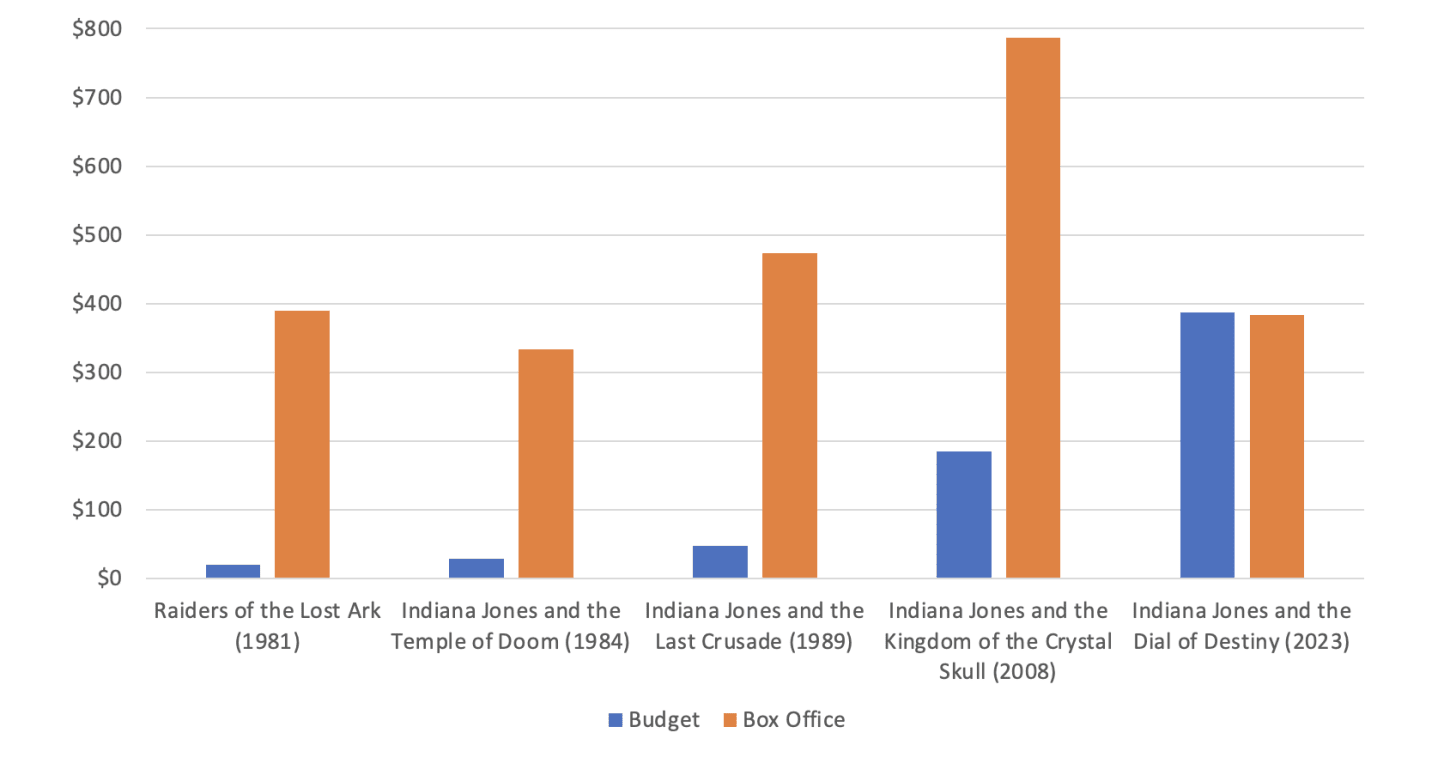I’m not shocked when I look in the mirror. Yeah, the Honest Broker isn’t getting any younger. But that’s the human condition.
Maybe I should start using a moisturizer. What do y’all think?
Nah. I’ll just let this aging thing play out.
On the other hand, I’m dumbfounded at everything in public life getting older—even older than me! Consider the current political landscape.
With each passing year, the US Congress looks more like the College of Cardinals (average age =78) or the Rolling Stones (average age = also 78).
We’re gonna need a lot of moisturizer.
But Congress is young and spry compared to Hollywood.
Back in 2000, 80% of movie revenues came from original ideas. But this has now totally flip-flopped,
Today 80% of the movie business is built on old ideas—remakes, and spin-offs, and various other brand extensions. And we went from 80% new to 80% old in just a few years.
In Hollywood, even the names of the businesses are reboots. HBO’s name was changed to HBO Max. Then it became just Max. And now it embraces the HBO Max name again.
This is like a chess problem where the goal isn’t winning, but getting back to your original position.
But this is no surprise. HBO has a history of running around in circles. Check out the previous rebranding exercise from February. I bet they hired an expensive corporate identity agency to make this bold move.
Pretending to change while staying the same is a plague in Hollywood. HBO actually has better credentials at innovation than most of its peers.
And the problem is far bigger than just the movie industry.
Look at music—and you see the same thing.
The share of old songs on streaming will soon reach 80%. It’s not quite there yet—the latest figures are 73%. But it was at 63% back in 2019 . So it’s just a matter of time.
In 2000, streaming didn’t exist, so we looked to the Billboard chart to gauge a song’s success. And new music made up more than 80% of charted songs. So here—just like the movies—we’re flip-flopping from 80% new to 80% old over the course of a few years.
I don’t have good figures on publishing. But I’m pretty sure that AI-generated books and articles will soon represent 80% of the marketplace. Maybe we’ve already reached that threshold.
AI is deliberately designed to cut-and-paste, rehashing past work as its modus operandi. And it will do this to every field—replacing originality with repetition and regurgitation.
This is the new 80% rule.
Just imagine if traditional businesses operated this way.
“Welcome to our restaurant, 80% of the food is leftovers.”
“Welcome to our boutique, 80% of clothing is secondhand.”
“Welcome to our dating service, 80% of the choices are your ex-girlfriends (or ex-boyfriends).”
None of that sounds very appetizing.
Some people blame the audience for this stagnation. That might have been plausible a few years ago—but not anymore. The audience is rejecting this regurgitation.
Just compare the numbers from Hollywood:
Star Wars revenues are shrinking, not growing
Indiana Jones revenues are shrinking, not growing
Marvel superhero revenues are shrinking, not growing
Mission Impossible revenues are shrinking, not growing
And the same is true of almost every other film franchise.
We hit peak Marvel back in 2019.
We hit peak Star Wars in 2015. Fast and Furious had its greatest success that same year—exactly a decade ago. We reached peak Batman in 2012. We achieved peak Indiana Jones in 2008.
No, you can’t blame the audience. They started losing interest in brand extensions a long time ago. The studios just didn’t want to believe it.
And you certainly can’t blame the artists. They only can make movies that get funded by the studios—and the studios only want to spend money on brand franchises.
The reality is that the system is broken. The honchos who run the culture and entertainment businesses made this mess. They created the ugly 80% rule by reheating leftovers—again and again and again.
Hey, even I enjoy leftovers. But not for every meal.
Any chef can tell you how to fix the problem. If you want tasty leftovers tomorrow, you need to cook something fresh tonight. Or even better, cook a fresh meal every night.
Anybody who believes that the value chain starts in the microwave will eventually starve. Somebody has to take a chance and do something original, or even leftovers go stale.
That’s where we stand in the creative economy right now. Around 80% of the output is leftovers, and they’re now starting to stink up the joint.
It’s not pretty. But I take some satisfaction in the fact that this isn’t sustainable. The people running our culture and entertainment behemoths will either figure that out—or get replaced by others who will cook up something fresh.
.png)





